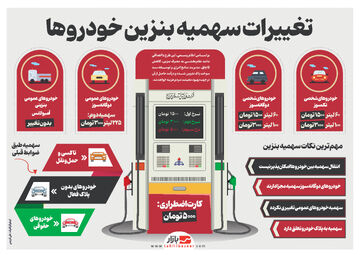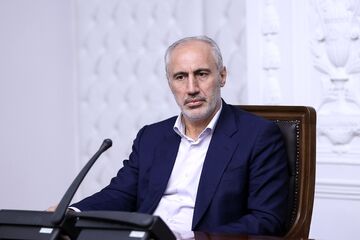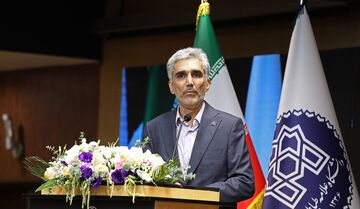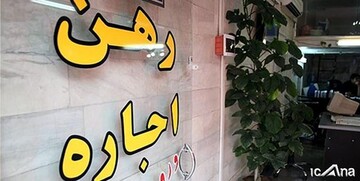TEHRAN(Bazaar) – William O. Beeman, Professor Emeritus of University of Minnesota, says the the current Israeli government is different from the government of Benjamin Netanyahu.
He adds that the road to improvement of Israel's security situation leads through the renewal of the JCPOA.
Following is the text of the Bazaar interview with Professor William O. Beeman.
Bazaar: According to the news, the Vienna talks are moving forward. The Western parties also announced for the first time the progress in the negotiations. What is your assessment?
Beeman: The United States and Iran are engaged in an elaborate dance with each other. There are two "levers" in this negotiation. The United States holds out the promise of reduced sanctions without specifying how that would be achieved. The Iranians increase or decrease enrichment of uranium according to how the talks are proceeding. The negotiations come down to those two levers--decreased sanctions in return for decreased enrichment; increased enrichment when the United States does not respond with promises of decreased sanctions. Whenever anyone reports on "progress" in the talks, it comes down to those two factors. I am interested in what is not being said now. In the past the United States talked about restrictions on Iranian conventional weapons (missiles) and decreased Iranian support for regional groups such as Hezbollah. Since the resumption of talks, these things have not been publicly discussed by the United States, making me wonder whether these things have been dropped from the negotiating table. If that is the case, that would represent progress since Iran is not going to agree either to restrict missile development or agree to pull back from supporting regional Shi'a-based groups.
Bazaar: According to some news, the negotiations will end by the end of February. This was while with the beginning of the talks in the seventh round, they assessed the situation as complicated and complicated. What happened that brought the views of Iran and the US closer together?
Beeman: Both sides want to score a "win" in these talks. From the recent reports they are moving closer to a clean agreement where Iran reduces enrichment and the United States eliminates some sanctions. This could be presented domestically as a win for both sides. The United States would say: "we prevented Iran from getting a nuclear weapon." Iran could say: "We convinced the United States to eliminate sanctions." If this were done simultaneously, it could be seen as a favorable outcome for the talks.
Bazaar: During a recent visit to Israel, US National Security Adviser Jake Sullivan told Israeli officials that the threat of a return to UN Security Council sanctions through a snapback mechanism should be used as a means to deter Iran from enriching uranium with weapons-grade. That is, the United States intends to activate the snapback mechanism if Iran's enrichment increases. Meanwhile, the head of Iran's Atomic Energy Organization, Mohammad Eslami, has stated that Iran will not carry out more than 60 percent enrichment, even if the talks fail. What is the reason for the US threat to activate the snapback mechanism?
Beeman: The "snapback" option was present in the original JCPOA. Secretary Sullivan can safely assure Israel that this provision would be active, because it was included in the original agreement. This is a way to "sell" the return to the JCPOA to Israel at effectively no cost, since nothing has changed. Mr. Eslami can also safely state that Iran will not enrich uranium above 60%, because Iran has no nuclear weapons program, and does not intend to develop one. There is no reason to enrich uranium over 60% except to develop a nuclear weapon-so this is an easy promise to make.
Bazaar: Israel, which has been opposed to any nuclear deal with Iran, has changed its position, declaring that a deal with Iran is better than no deal at all. What is the reason for Israel's change of position and its acceptance of the revival of the JCPOA?
Beeman: The current Israeli government is different from the government of Benjamin Netanyahu. Netanyahu used the "threat" of Iran for his own political purposes to scare Israelis as a means to stay in power despite his own criminal behavior. Without Netanyahu there is no reason for Israel to continue to oppose the JCPOA. Israeli officials, including Benny Gantz know very well that Iran poses no danger whatever to Israel. None. They are far more concerned with Hezbollah and Hamas. They also know that nothing will be done concerning Iran's support for Hezbollah and Hamas unless the United States returns to the JCPOA. So, the road to improvement of Israel's security situation leads through the renewal of the JCPOA. After that has happened, additional negotiations concerning other matters can be pursued. Gantz is not a pacifist, but he is a realist, and he is not a charlatan like Netanyahu.
Bazaar: South Korea's Deputy Foreign Minister traveled to Vienna to decide on freeing up Iran's blocked funds. What is your assessment of this visit to Vienna during the talks?
Beeman: This is an interesting development. Iran has about $7 billion in funds locked up in Korea due to the U.S. Sanctions. The United States allowed Iran to pay some debts out of those funds to Japan last July. It is not clear how South Korea benefits from freeing up these funds, but it is a way for South Korea to become a "player" in the JCPOA negotiations. I am hoping more details concerning this move will be revealed, because it is a small matter, but it is also a novel development in these negotiations. What might be said is that release of the South Korean funds may be seen as a clever indirect bargaining chip on the part of the United States to move Iran closer to an agreement. The precedent of the release of the funds in July can be cited as a justification for further releasing these funds.
















نظر شما